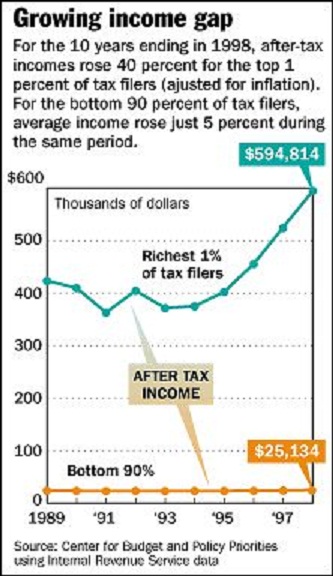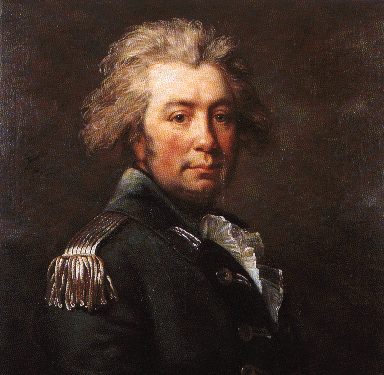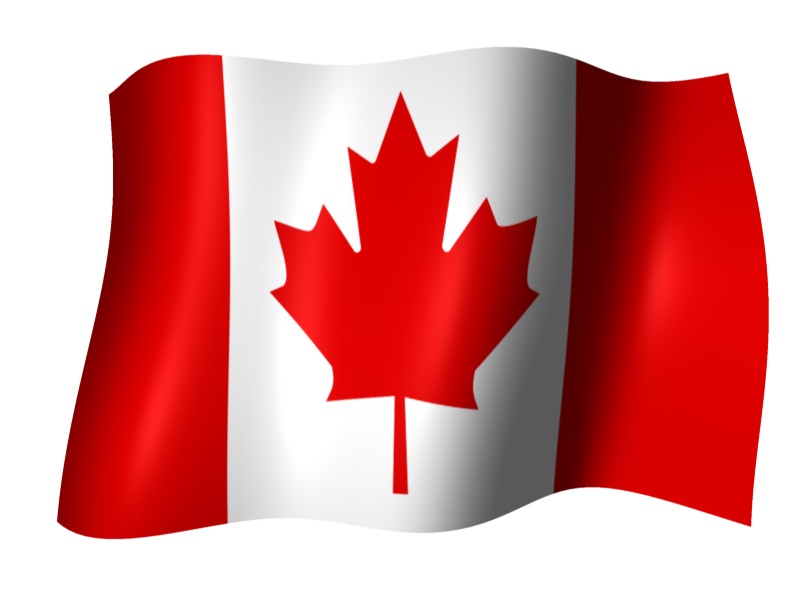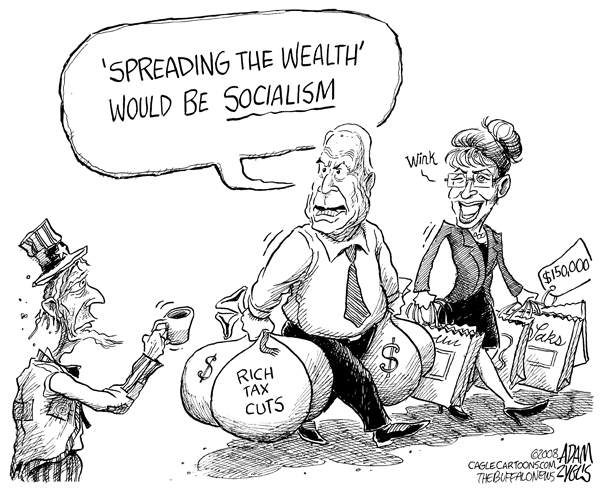And it’s only gotten worse, thanks to — you guessed it — the unrelenting trend of tax cuts for the richest of the rich:
The gap between the wealthiest Americans and middle- and working-class Americans has more than tripled in the past three decades, according to a June 25 report by the Center on Budget and Policy Priorities.
New data show that the gaps in after-tax income between the richest 1 percent of Americans and the middle and poorest parts of the population in 2007 was the highest it’s been in 80 years, while the share of income going to the middle one-fifth of Americans shrank to its lowest level ever.
The CBPP report attributes the widening of this gap partly to Bush Administration tax cuts, which primarily benefited the wealthy. Of the $1.7 trillion in tax cuts taxpayers received through 2008, high-income households received by far the largest — not only in amount but also as a percentage of income — which shifted the concentration of after-tax income toward the top of the spectrum. (From The Huffington Post)
Now that’s redistribution of wealth! As Nouriel Roubini has noted, “We have invented socialism for the rich.”
The Canadian trend in income disparity is virtually identical.
In related news, 1 in 7 wealthy homeowners are in default or seriously behind in payments for at least one of their mortgages, which is by far the highest of any cohort: they’re simply walking away from what they consider to be a bad investment. So much for the vicious right-wing meme that the financial crisis was caused by poor (i.e. non-white) people taking out mortgages on homes they ought never to have had.
*
Frye in “The Meeting of Past and Future in William Morris”:
We said that culture seems to develop spatially in the opposite direction from political and economic movements. The latter centralize and the former decentralize. (CW 17, 321)
So few words, so much truth. Our culture is remarkable for its lively decentralization (whose proliferating hybridization of course drives retrograde conservatives nuts — a very good sign that it’s the right way to go), while at the same time we see the unmistakable emergence of “plutonomy”: the economic and political domination of society by the few. As an old boss of mine liked to intone: “This has gotta cease.”




